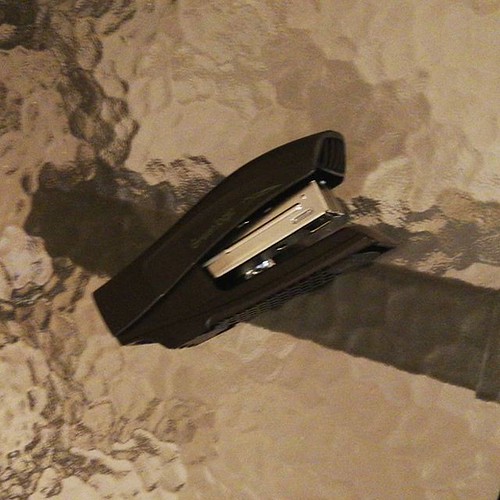
There’s a sense that the world is broken, and we built this world. This got me thinking about when I was part of the team of WorldChanging.com, which started off strong but later would become a book. I didn’t agree with the publishing team at the time because I was perturbed that while they had agreed to publishing under a Creative Commons License with me, they never really posted the copyright notice for it.
That, and some disagreements about the Alert Retrieval Cache that became nasty, cinched it for me. Imagine my surprise when I was asked by email, and not by Alex Steffen, if they could use some of my articles in the book when I had made it a point that everything I wrote for WorldChanging.com was under a Creative Commons license. When I corresponded with Jamais Cascio about it, since he was involved from the start and he had brought me into the team as I recall, the answer was pragmatic. Do I think less of the team? Some of them. We had a good thing going.
Thinking of this, I visited the domain today and saw that it’s been repurposed to something about “Flexible Mobile Offgrid habits”. I checked the domain WHOIS, and saw the information is registered by Google LLC.
Like most things I’ve been a part of or worked on, it’s gone. It’s not really that big of a loss, the book was dated even before it was published. I never bothered with buying a copy, and I was never offered one either from those that cashed in from the publishing. It had a developing world bias that didn’t translate well to the developing world, in my opinion, which is another reason I left the team. At the core of it though, was a problem I was having with someone else regarding the Alert Retrieval Cache, which worked something like Twitter about a year before Twitter was formed.
In The Green Pen, the Alert Retrieval Cache was described as an offshoot of the blog when in fact that’s not what it was at all. The Alert Retrieval Cache (ARC) was attacked on the SEA-EAT blog at the time when I was trying to get a post done about it so that we could use it. One of the actors of the ARC at the time was busy self-promoting, and it certainly must have looked like self-promotion. There was, after all, a lot that could be done with such a combination of technologies, and he was busy trying to promote something when we were trying to test and build it in real time. It’s no surprise to me that Peter Griffin and Dinah Mehta may have misunderstood that part of history, but that and the issues on WorldChanging.com pretty much sank the project.
That, despite how it was done, was a good thing in my opinion. I didn’t see it at the time, but it was a good thing, and I’ll explain why.
After Twitter came into being, I was still toying with the Alert Retrieval Cache. Andy Carvin, who I would later find out created a Wikipedia stub on me as a way to promote the Digital Divide Network without my knowledge and causing a kerfuffle between myself and Wikipedia, asked me how Twitter could be used for disaster management. Someone from the U.S. Army, at around the same time, was also asking me about disaster communications (but as I explained to the Army, they had a nice closed system, so they didn’t need me).
The trouble that just about everyone has figured out since then was what I explained to Andy Carvin at the time. The trouble I anticipated was trusted sources. Now there’s much ado about misinformation, disinformation and propaganda on social media, but it’s too late, Pandora’s box was not only opened but danced around. Facebook’s algorithms are in overdrive while below quality, Twitter trolls right now are bad enough where NAFO has real people trolling other trolls, I know Instagram and Reddit have blocked the International Legion for Defense of Ukraine’s accounts… it’s all run amok.
The trusted sources issue is not an easy one to solve. I built some code to contend with it years ago, and I may revisit that in some Python I toy with off and on, but the reality is that people were so busy trying to make a buck while questioning other people’s motives instead of their own. Everyone was trying to claw ahead, some to get the next big story, some to put out fires, and so on. It was quite the mess.
Yet can we get trusted sources? Trusted by who? And therein is the rub. I look back on everyone who cashed in during that period and quietly shake my head because that’s the sort of thing that really bothers me. I was a true believer at that time, as were others. And those that cashed in on that are the ones I hold in the lowest regard because they did it on the backs of people who truly did believe that they were improving the world.
Yet here we are. The world is no better. The world has been changing, and not for the better.
Maybe there’s a link between my observations and that. I don’t know, but what I do know is that if there’s a group of people who truly want to improve the the world, the trust must be there.
